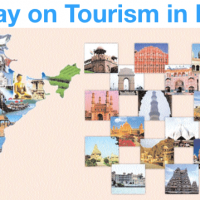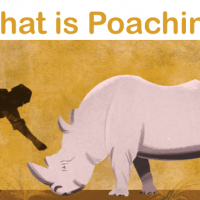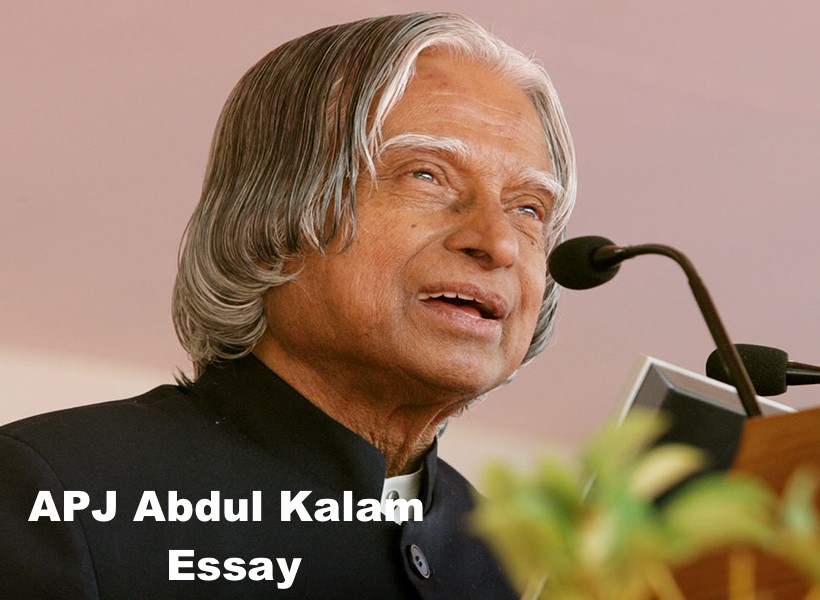Hello Friend This is special category for our small reader who study in school. If they looking for english essay for their school homework or any kind of english essay article then this special category might help you all guyz. in this article we will share Patriotism Essay in English for all class children and student . Initially we have published 1000 word article for Patriotism.
Essay on Patriotism / nationalism in English

Every living being loves the place where it is born. The place of one’s birth is one’s home and everybody, especially a rational being, tries to defend it and keep it in proper order with all his might, capacity and capability,
Even a sparrow tries to defend its nest and its fledglings with all the power within itself if they are attacked by Some prowler like a crow, etc.
The saving: “Every cock fights best at its own dung-hill” is not without a deep meaning. It implies that a person (or for that matter, any creature) has the maximum amount of self-confidence and inspirational energy at his (or its) own native place or ground. Rightly did Sir Walter Scott say,
I bow to thee my country,
All earthly things above.”
The determination of a typical John Bull is: “My country, right or Wrong.
We have in literature several stories and poems which inspire the spirit of patriotism in us. In Hindi we have a famous poem on “Jhansi ki Rani Lakshmi Bai” in which the lines run like this :
“Khoob lari mardani Woh to Jhansi wali rani thi.”
(i.e. she fought very bravely like brave men; she was the Queen of Jhansi)
In English, Tennyson has written the famous poem: “Charge of the Light Brigade” which includes such inspiring lines as –
1. “There’s not to make reply,
There’s not to reason why,
There’s but to do and die.”
2. Cannon to right of them,
Cannon to left of them,
Cannon in front of then,
Volleyed and thundered.
3. Stormed at with shot and shell,
Boldly the rode and well,
Into the ja’S of death,
Into the mouth of hall,
Rode the six hundred.
4. Flashed all their Sabres bare,
Flashed as the turned in air,
Sabring the gunners there,
Charging and army,
While all the world wondered.
In India, the spirit of patriotism) has not been lacking, except Perhaps in the modern times, though still not among the common People.
We have a rich cultural heritage of which we must be proud. We have a composite culture which is another matter of pride. Then in Spite of such a vast variety in our society and in our various Te81OS and states, we have the immortal spirit of “unity in diversity. It is our good luck that we have taken birth in a country where we have the people who are the most tolerant of all kinds of variety and even adverse criticism and practices. We are a secular society where there is no discrimination on the basis of caste, creed, race, religion or region.
Can a true patriot forget Iqbal’s famous line-
“Sare Jahan se achha,
Hindustan Hamara;
Hum bulbulen hain iski,
Yes gulistan hamara.”
An the mandate of the Constitution, we should not discriminate between men and women. Woman is no longer the weaker sex. Science has already proved it abundantly We have had a long history of freedom struggle. Thousands Of our young men kissed the noose willingly to attain freedom for us.
Many others suffered in jails and bore untold miseries and tortures hurled upon then by the Cruel Britishers. Let us not forget the sacrifices of these freedom fighters and martyrs, Can w afford to forget Lala Lajpat Rai, Subhash Chandra Bose, Sardar Bhagat Singh and his Companions, Sukhdev and Raj Guru, Chander Shekhar Azad and many others?
Pitiably we have forgotten even the names of hundreds of freedom fighters who died or suffered in other ways for us. This is how Swami Vivekananda, the famous Indian philosopher, orator, patriot and religious, spiritual and cultural ambassador of India, Says about this Country -“If there is any land on this earth that can lay claims to be the blessed ‘Punya Bhumi‘ (holy land), to be the land to which all souls on this earth must come to account for karma’, the land to which every Soul that is wending its way Godard must come to attain its last home, the land where humanity has attained its highest towards gentleness, towards, generosity, towards purity, towards calmness, above all the land of introspection and of spirituality-it is India.”
Such positive thoughts about India may not be found anywhere else. That is why Tagore says- ”
If you want to know India, study Vivekananda. In him everything is positive and nothing negative.
Swami Vivekananda says,
I am thoroughly convinced that no individual or nation can live by holding itself apart from the community of others….”
Swami Vivekananda’s Views are very close to those of Jawahar Lal Nehru who also opines that the main reason for India’s downfall washer aloofness from other countries.
In ancient times, India had trade relations with neighbouring Countries and even with countries as far as Italy, Greece, Arabia, Mongolia, Japan and not to speak of Sri Lanka, Malaysia, Indonesia, Singapore, Thailand, Afghanistan, Iran, China, etc.
In (early) medieval times, India isolated herself and lost her glory, importance and power, Caste system, purdah, the custom of ‘sati’ and other such evils are life-hindering practices which not only brought a bad name to her, but also weakened her internally and nibbled at her inner Soul and substance.
Let us now all gird up our loins to serve our Country and try to uplift the lot of the poor, Women, dalits, orphans, the handicapped, the children, the Senior citizens and the youth of our country. Let us give attention to such problems as population explosion, unemployment, poverty, crime committing, drug taking, illiteracy, disease, AIDS, etc. and do whatever we can for national reconstruction and saving our people from natural and other disasters. Let us join hands and brain to make our country strong and free from the menace of communalism, Social justices, cruel to animals, deforestation, pollution, etc.
If we, particularly the students and the youth, play honestly 2 constructive sole, we can change our country into a veritable heave. That will be the manifestation of the true spirit of patriotism in 15 Last but not the least, we should always be ready to die for the defence of our country. We should be ready to make any sacrifice for our Country.
We should, however, understand that patriotism does not mean hating other countries. Our catholic spirit of universalism and internationalism should not dampen our spirit of true patriotism and nationalism. Similarly, patriotism and nationalism in us should not lead us to the dark den of chauvinism and jingoism. Let us love all mankind and be altruistic philanthropists while simultaneously being true patriots,
Also Read:
- Essay on My Best Friend
- Reliance Jio Customer Care
- Essay on My School in English
- Essay on Family in English
- First Day at School Essay
- Corruption Essay in English
- Women Empowerment Essay
- Republic Day Essay in English
- Mahatma Gandhi Essay in English
- Essay on Global Warming in English
- APJ Abdul Kalam Essay in English
- Diwali Essay in English for Class
Essay on Patriotism / nationalism in English
Nationalism and patriotism are sometimes used interchangeably, being treated as synonymous. They, of course, have a similar connotation and they overlap in meaning. But whereas patriotism shows intense love for the country and a desire to participate in all its activities in weal and woe and to defend it at any cost, nationalism gives more stress on its sovereignty, integration and unity.
Internationalism rests on the idea of a cosmic or world citizenship. It expresses concerns and interests of the whole of mankind and prompts an active role in world affairs and to matters generally pertaining to all or most of the countries of the world. Now, it is the age of globalisation when all social and economic (if not political) forces in the world are getting mixed up. But this conglomeration presents a strange enigma. In the opinion of the celebrated writer, M.S.N. Menon, as expressed by him in his article, captioned: “Politics only follows expediency.”
“Nationalism is emerging in many countries. Even in America and Japan. Isn’t it strange that in the age of globalisation, ethnicity has become the most emotive factor in the world? This is because the nation state can no more deliver what it promises. And in an inter- dependent global economy, the promises of the nation states are hollow. The party manifestos are frauds. And promises of politicians are worse.”
As is amply clear from all sources, globalisation is the order of the day, but it has not suppressed the fading of nationalism among the nations. Even through globalisation, nations try to promote their own causes in general, irrespective of the effect their activities may have on other states. Thus, as for instance, in our own country, multinational companies are most careful about their own interests or interests of their respective countries instead of the interests of the countries in which they operate.
In ancient India, we had the holy people who travelled from one shrine to the other in the remotest corners of the country. Thinkers like Chanakya thought of not only a national but a world empire for Chandragupta Maurya. Ashoka’s empire spread on almost the whole of the Indian subcontinent and even in Afghanistan and, may be, other countries, no longer apart of India.
Then we had Adi Shankaracharya who spread his Upanishadic message all over India and established his maths’ (monasteries) in all the four corners of India. Even in middle ages, Mughals, particularly Akbar and Aurangzeb had their s way nore or less, on the major part of the Indian subcontinent.
When the British came to India, by and by they conquered the whole of India, leaving aside the principalities and native states over whom they held partial suzerainty. They set up a network of railway lines and adopted several other means to knit India into one unit. They introduced English in schools to make convenient easy communication through this foreign link language which practically became the lingua france of the country. Of course, they did all this for their own convenience. But, the fact remains that this system brought all parts of India together as never before and now it was only a matter of some effort to give it a concrete shape. This made the matter easier for our leaders. However, we have to admit without any hitch that the idea of nationalism had already taken roots in the western world before it came into India.
It is, however, true that prior to the British rule in India, though India had a semblance of unity in the religious and cultural matters (for instance, besides pilgrimages, in the matter of celebrating festivals), yet India could not be called a nation, strictly according to the political science theory..
In fact, all such things as nationalism, globalisation, internationalism, unionisation, etc. can co-exist as has been demonstrated by our great thinkers like Tagore, Gandhi, Nehru and others. But like anything else, excess of nationalism or any of the “isms” is bad.
However, when Swami Vivekananda talks of India’s merits, he cannot be said to be overpraising India at the cost of other countries. It is because he does not talk of imperialism, chauvinism, conquest or possessiveness but of gentleness, generosity, purity, introspection and such virtues:
“If there is any land on this earth that can lay claims to be the blessed punya bhoomi (holy land) to be the land to which all souls on this earth must come to account for karma, the land to which every soul that is wending its way Godward must come to attain its last home, the land where humanity has attained its highest towards __gentleness, towards generosity, towards purity, towards calmness, _above all the land of introspection and of spirituality-it is India. – Vivekananda





